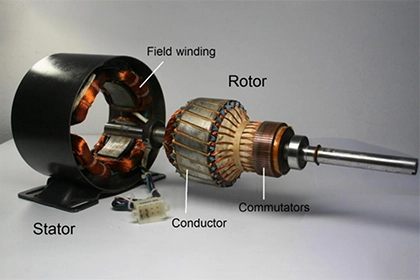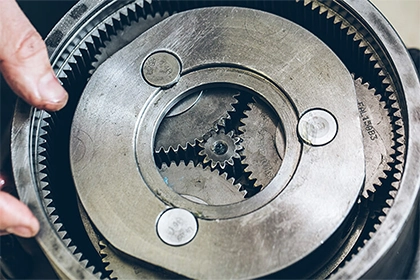
Assessment of Contemporary Industrial Automation
Industrial automation can significantly improve productivity and efficiency. Therefore, the development of automation technology and industry trends have always been an important topic of concern.
Industrial automation is the cornerstone of modern manufacturing, for some industries, automation can greatly improve productivity and efficiency. The core equipment of automation in modern society mainly refers to various types of industrial automation control equipment and systems, such as servo systems, stepping systems, inverters, controllers, and so on. As an important part of the development of several industries, automation technology is widely used in machine tool processing, robotics, textiles, packaging, food, and other industries. This paper provides an in-depth study of the current status of the industrial automation industry and explores its technological advancements, market dynamics and future trajectory.
Industry Applications
Industrial automation technology is widely used in the robotics industry. Through the use of automation systems, these robots can become more autonomous, flexible and intelligent, such as the robotic arms that are often used in workshops are a type of robots, these robotic arms allow predictive maintenance, real-time monitoring and autonomous decision-making, which increases productivity and improves the safety of workers' operations. Moreover, in the field of electrical automation, automation technology can utilize electrical energy to drive devices such as electric actuators, sensors, lasers, and control panels, etc., and with automation technology, these devices can duplicate various items on their own.
Automation Market Size
According to Fortune Business Insights, the global market size of industrial automation equipment has reached $191.89 billion in 2021 alone and will continue to grow at a rate of about 9% in 2022. According to the statistics, the middle and high-end industrial control field is mainly dominated by well-known brands such as Siemens, Yaskawa Electric, ABB, Panasonic, and Mitsubishi Electric. Meanwhile, part of the market is based on the introduction of complete sets of equipment and industrialized automation systems for secondary development, or through the introduction of foreign technology, and foreign cooperation in the production of industrial control products.
The Rise of the Internet of Things (IoT)
The Internet of Things (IoT) has enabled a new level of connectivity in the industrial sector. IoT devices collect large amounts of data from machinery and equipment that can be analyzed to better serve individual users. Smart electric toothbrushes such as the ones we often use daily are also examples of IoT, which use sensors to collect data and then provide smart services to the user.
Sustainability and environmental impact
With the increasing call for green and sustainable development, the industrial sector in various countries is focusing more and more on sustainability. Industrial automation can reduce environmental pollution during industrial production. It makes the operation of industrial production lines more efficient, reduces the waste of energy and raw materials, and lowers pollutant emissions. In addition, automation equipment usually adopts advanced energy-saving technologies, which further reduces energy consumption. This is of great significance to the environmental protection of cities and helps to improve the quality of life of residents.
Conclusion
The industrial automation industry is currently characterized by rapid technological advancements, changing market dynamics and a positive outlook for the future. With continuous innovations in robotics, artificial intelligence and the Internet of Things, the automation sector is expected to realize further growth.



Leave a Comment